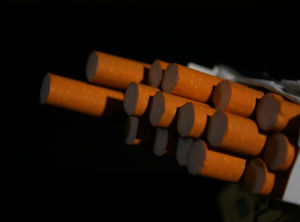Discussing measures to fight the trade of illegal products
By Bufete Mejía & Asociados

“With smuggling crimes, all those industries are seriously harmed. Companies and producers lose large amounts of resources and consumers put their health at risk acquiring products that do not have the proper quality and safety controls”, said the president of Concamin, Francisco Cervantes Díaz.
Trade in fake goods, which infringe on trademarks and copyright, creates profits for organised crime gangs at the expense of companies and governments. Fakes of items like medical supplies, car parts, toys, food and cosmetics brands and electrical goods carry a range of health and safety risks. Examples include ineffective prescription drugs, unsafe dental filling materials, fire hazards from poorly wired electronic goods and sub-standard chemicals in lipsticks and baby formula.
In March, 2019, personal care items, office supplies, tobacco, agrochemicals, electronic accessories and medical products were among the illicit goods seized in an INTERPOL operation carried out across Central and North America and the Caribbean. Police and customs officers conducted raids and inspections in markets, shops and at borders in Honduras, Belize, Costa Rica, Cuba, the Dominican Republic, Guatemala, Jamaica, Mexico and Panama. These actions led to the seizure of around 746,000 items with a total estimated value of more than USD 3.5 million and the identification of 150 individuals and 65 companies who were operating illicitly.
In 2016 Honduras committed to undertake a series of actions to strengthen the protection and enforcement of intellectual property after the United States took special measures to increase engagement on intellectual property enforcement tin the country. To bolster criminal enforcement, Honduras increased the number of prosecutors specializing in criminal IPR enforcement, committed to publish quarterly reports on prosecution case activity, addressed signal piracy in cable and satellite transmissions and addressed the need for greater clarity in the scope of protection for geographical indications (GIs).
